Blackjack Tournament, Final Hand

Casino games tournaments are fun, and they can be profitable too. In upcoming articles, we will continue to publish a series of excerpts from Stanford Wong’s book, Casino Tournament Strategy.
This article applies to any tournament situation where there is only one winner per table. Use it when only one person advances to the next round, or when two people advance but one is so far ahead as to have the lead position locked up, and when several people at the table will receive prizes but the prize for the winner is considerably more than the prize for finishing second. This holds true whether the tournament is online or in a brick-and-mortar casino, such as in Las Vegas.
By the time you make a bet on the final hand, you should be BR1. Either that or you should have busted out.
BR1 means the player with the highest present bankroll, BR2 the second-highest, and BR3 the third-highest.
BR1 on the Final Hand
As BR1 on the final hand, generally you should bet big. The reason is generally there are several competitors who can catch you if they win their final bets, and your probability of winning the table is higher if you bet big yourself rather than if you bet small and hope that all of your competitors lose.
The Two-Player Exception
If you are BR1, you bet first, you have a slim lead over BR2, and BR3 is out of it, bet small. In other words, if you have only one competitor, you are better off trying to win the table by that competitor losing rather than by winning your own bet. If you bet small, you have a 56% chance of winning the table because your opponent has a 44% chance of winning a bet. If you bet big, you have only a 52% chance of winning the table because you have a 48% chance of losing your bet.
Your best bet, if you bet first in a two-person game, is to bet just less than your lead over BR2. For example, if you are ahead by 800 to 500 with a 500 max bet, bet 295. This is superior to betting the absolute minimum for two reasons. First, it automatically covers you in the event both BR2 and you win your bets if it is possible for you to cover that situation. (You like to put BR2 in the position where the only way that person can win the table is to win the hand while you lose yours.) Second is that it gives you the opportunity to beat BR2 by doubling down if that is the only way you have a chance. In this example of 800 to 500, a max-bet natural will bring BR2 up to 1250. If you have bet 295, you can double down no matter what hand you are dealt, or double for less (160 will do it) to have a chance to beat 1250. Had you bet 5, you would not have a chance to beat a big-bet natural by BR2.
Win Both Ways
If BR2 bets ahead of you, you should approximately match BR2’s bet. You like to be in the position where if both hands win you win the table, and if both hands lose you win the table.
Even better than exactly matching BR2’s bet is to keep what BR2 keeps plus a chip. For example, if you lead 800 to 600 and BR2 bets 300, bet 495. BR2 keeps 300 unbet, and you keep 305 unbet. That bet does everything that matching BR2’s bet would do in the event both hands lose. It also allows you to win without doubling down in the event BR2 doubles down, which is better than the situation you would be in if you had just matched BR2’s bet.
Shut BR2 Out
If your lead is so large that BR2 cannot catch you even with a double down, bet the minimum. Why jeopardize a lock? (If anyone can double down to get ahead of you, you do not have a lock. But if the only way someone can beat you is by getting a natural, then bet as if you have a lock.)
If the only way BR2 can catch you is with a double down, then you are better off betting big. You are close to a .9 favorite if you bet big enough to win the table both ways even if BR2 doubles down, but you are no more than a .7 favorite if you bet so small that you can lose the table to BR2 doubling down. In other words, you should risk BR2 winning the table by winning while you lose, in order to win the table yourself when BR2 doubles down and both hands win.
Shutting out BR3 also has value. You should like to bet less than your lead over BR3. You should also like to bet so small that a double-down win by BR3 will not catch you.
This article is part of a series, to be continued…
Excerpted with permission from Casino Tournament Strategy by Stanford Wong, edited for this format.

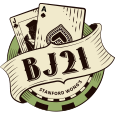



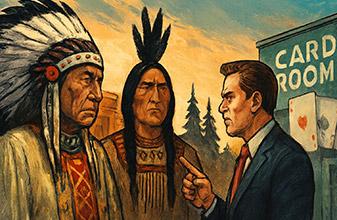
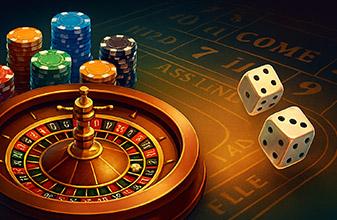
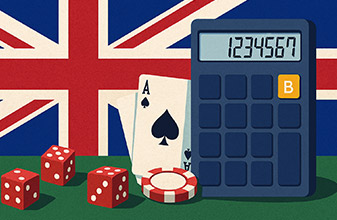
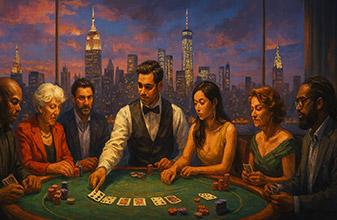


Please log in or register to leave a comment